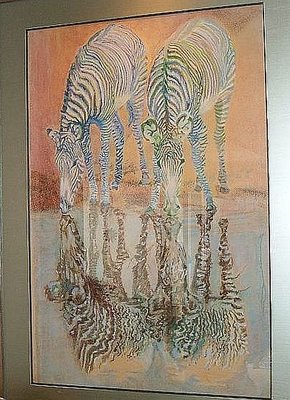I don't know if that's the mannerism of talking I learned as a child, or what, but I notice its limitation in communication and I don't know what to do about it. What I really want to do is to say something, then say lots of somethings, and then assign a percentage to them independently that shows their relationship to how I feel about the whole thing I'm concerned with. I can't do that so easily with English. So thats' why I think English words are a lousy way to describe what I'm trying to make the language do. I want a way that I can articulate many opposing feelings and points of view, and then I want to assign their priority in relationship to how I am going to allow me to guide my decision-making, or create the effect I'm going to have on someone else to communicate, teach or entertain. I want to have an emotional truth, a factual truth, a complete fantasy and a bottom line truth - and many more truths - all operating at once inside me...because this is how I experience my own perceptual self.

If I am communicating using music, or art, or other multi-media, etc. I can contain all the opposing points of view into a whole much easier. In words there are so many oppositions that are supposed to preclude and cancel out each other, that I am constantly frustrated when I try to communicate the relational importance of the content of what I'm saying. What my culture defines as opposite gets in my way.
I imagine that's why description is so much of our image of something and how it seems to us now. It strikes me also that's why science tries to limit experiments so their descriptive results actually "prove" something about this shared reality that we squirelley humans are perceiving and creating.
No comments:
Post a Comment